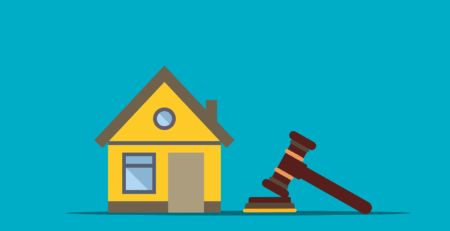Will a 1% Interest Rate Affect Your Mortgage?
The Bank of England has recently raised the interest rate to 1% – a thirteen year high – and this will have an effect on both our savings and mortgages.
A 0.25-percentage-point increase was approved by the Bank of England’s Monetary Policy Committee (MPC), making this rise in the interest rate the highest level since February 2009. The increases over the last five months have witnessed a sustained rise as the Bank of England takes measures to try to ease the burden of inflation.
The rate was at an all-time low of 0.1 percent in December 2021; it has since increased four times. The base rate, issued by the central bank, informs the rates that banks and building societies provide to consumers. As a result, historically, increases in rates have also led to increases in savings and mortgage interest rates. There is, however, no assurance of either of these outcomes.
If you’d like to learn more about the Bank of England’s decision to raise the base rate to one percent, you can visit Which?
The reasoning behind the Bank’s base rate rise
The Bank of England sets the base rate, which is the rate at which it lends to institutions, to try to keep inflation at 2%.
At over three times the Bank of England’s target rate of 2%, inflation is now at 7% due to record-high costs for energy like gas and electricity. A number of factors have contributed to the soaring energy costs, including the pandemic, lower oil exploration , and geopolitical conflict and sanctions.
While inflation is expected to reach 10% by the end of the year, the Bank of England predicts that it will fall to the 2% target within two years. Whether this prediction is realised or not, only time will tell.
The Bank has hinted that, depending on the state of the economy, it may have to raise interest rates again in the near future. As things presently seem, further rises are very likely to occur.
What is the significance of the base rate?
The base rate regulates how much money the Bank of England charges the commercial banks for lending them money.
The higher the base rate, the more expensive it is for banks to borrow money, and these costs are passed on to customers in the form of increased interest rates on their lending products.

As a result, while a higher base rate can raise the cost of mortgages and other loans, it can also raise the interest rate on savings accounts, although it’s not always so straight forward.
Higher interest rates tend to encourage more people to save as their consumer spending confidence is lower. With more of people’s income being spent on mortgage costs after an interest rate rise, this will likely mean reduced discretionary spending on other goods and services, resulting in lower demand and, hopefully, reduced price inflation.
How will a base rate rise affect mortgages?
The base rate’s effect on your mortgage will depend on what type of mortgage you have. Jamie Johnson, CEO of FJP Investment, walks us through the basics of the three main types of mortgages and how they will be affected.
- Fixed rate mortgages
- Tracker mortgages
- Mortgages with Standard Variable Rates (SVR)
Fixed rate mortgages
For fixed rate mortgages, you won’t be impacted by the change in the base rate until the end of the original fixed period, which is normally two or five years.
A higher interest rate may be an issue if and when it’s time to remortgage, so be aware of this when shopping around. A rise in base rates will inevitably affect the deals that lenders will have on offer.
Tracker mortgages
Homeowners that are currently on a tracker mortgage will experience an immediate effect with higher costs because their mortgage repayments “track” or reflect the base rate. After the base rate goes up, payments will be 0.25 percent more than they were before.
Mortgages with Standard Variable Rates (SVR)
Similar to the tracker mortgage, an SVR is often linked to the Bank of England’s base rate, but an automatic rise won’t necessarily result.
Because of the base rate increase, you will have to first wait and see how your lender reacts. It’s possible that they’ll raise your rate, but it’s entirely in their hands whether they do so or not. A number of factors will go into making this decision.
If you don’t get a new loan by refinancing or your fixed-rate mortgage term runs out, you will be put on the Special Variable Rate (SVR) of your lender.
Consider converting to a fixed-contract deal from an SVR mortgage if you’re looking for lower interest rates. For as long as the agreement is in place, you will also be protected from any interest rate hikes that happen in the coming months.
What if the rate rise makes it difficult to pay your mortgage?
Your lender may be able to help you if your mortgage rate rises and you’re having problems keeping up with the payments. Don’t suffer or worry in silence and get into financial problems. Speak with them immediately. It’s likely that you have already received an email from your bank describing these actions. Citizens Advice and StepChange, as well as other non-profit debt counsellors, can help guide you, so you are not alone.
What about the effect of a rate rise on savings?
Interest rates on savings accounts might climb if the base rate goes up. For years, people have struggled to find high-interest savings choices. This would be a welcome relief for millions of savers who have witnessed poor savings rates for years. The silver lining in the cloud of rate rises means that, as a result of the recent increases in the base rates, savings rates have gone up. However, this does not mean the new increase may be passed on to you right away. When there is more competition in the market, this is a good time to explore if you can get a better deal elsewhere with other banks and lending institutions.
ARE YOU READY TO START INVESTING?
Subscribe to our mailing list now for exclusive deals, investment guides and the latest information from the property market.







